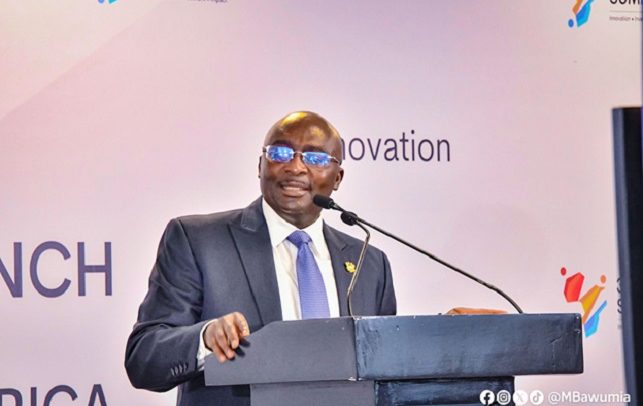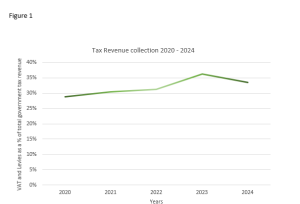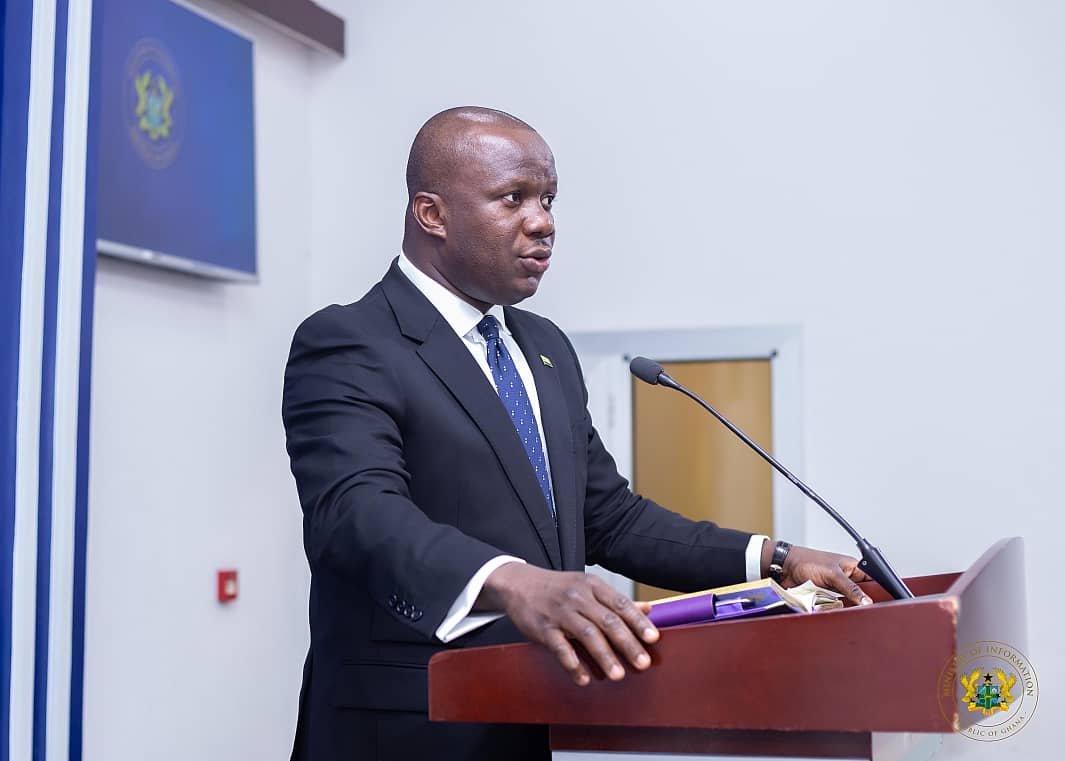
The UK- Ghana Chamber of Commerce (UKGCC), a member-based trade association that promotes trade between the UK and Ghana, has released the 6th edition of its annual Ghana Business Environment and Competitive Survey (BECS) Report for the year 2024.
725 businesses across Ghana comprising UKGCC member and non-member companies from 22 industries and ranging from small to large companies, participated in the survey. Business components assessed included availability of telecom, power, labour, water, and logistics partners, taxation policy, cost of telecoms, government bureaucracy, regulatory framework, and government support of exports.
The Report reveals a mixed picture for Ghana’s business environment. While businesses express cautious optimism about future growth, particularly in technology adoption and market expansion, significant challenges remain.
Key Survey Findings
The survey identifies taxation policy, cost of telecoms, government bureaucracy, and the regulatory framework as the top concerns for businesses in 2024. For the first time, cost of telecoms and the regulatory framework appeared on the list of poorly rated business components, emphasising areas that require immediate government attention to enhance Ghana’s business environment.
Despite challenges, businesses rated the availability of telecom facilities as the best-performing business component, though this rating declined from 36% in 2023 to 20% in 2024. Other positively rated components include the availability of power, labour, water, and logistics partners.
Corruption remains a persistent issue, consistently appearing among the top five most declined components over the past four years. Tax policy and the cost of power also remain key concerns, highlighting the need for government engagement to develop sustainable solutions. Respondents identified advanced technology and telecom services as the most improved components since 2021. For the first time, the availability of quality infrastructure was included in the list of improvements, reflecting incremental progress.
In terms of cost of doing business in Ghana, tax policy and macroeconomic challenges, including the weakening of the Ghana Cedi, were highlighted as key drivers of high operational costs, thereby increasing cost of doing business. Persistent exchange rate volatility continues to influence the pricing of domestic factors of production.
Respondents identified domestic marketing, certifications, quality control, and labour as the most affordable business components over the past four years. However, rising inflation in 2024 has impacted the affordability of labour.
Key Priorities for Action
The report advocates for government-business collaboration to proactively reduce tax burdens, combat corruption and enhance a transparency, streamline and simplify regulations to create a predictable regulatory environment that boosts investor confidence, and improve access to flexible and affordable financing mechanisms and provide growth incentives to support SMEs, which are critical to Ghana’s economic resilience and growth.
Government-business collaboration is also needed to enact policies to ensure the safety of investments and create a stable business climate that attracts both local and international investors.
Leveraging the immense opportunities in key sectors such as manufacturing, technology and services through targeted support, including capacity building and infrastructure investment; and addressing gaps in energy, telecom, and water infrastructure to enable sustainable business operations are also identified as further areas for government-business collaboration.
The collective voices of over 725 respondents in this year’s survey reflect the aspirations, challenges, and contributions of Ghana’s business leaders. These insights serve as a foundation for creating actionable strategies and fostering collaboration between the government, private sector, and international partners to unlock Ghana’s full potential and create a more enabling business environment for sustainable economic growth.
Anthony Pile MBE, UKGCC Executive Council Chairman, remarked that “Creating a safe and secure environment is paramount for fostering business confidence. Strategic investments in community policing, enhanced street lighting, and an increased presence of security personnel can significantly reduce crime and ensure businesses thrive in a stable setting”.
Adjoba Kyiamah, Executive Director of UKGCC, added that “The 2024 BECS report highlights the critical challenges facing Ghana’s manufacturing sector, including high production costs, limited access to financing, and energy inefficiencies”.
According to Ms. Kyiamah, “comprehensive reforms aimed at reducing these operational costs, improving access to affordable financing, and incentivising energy-efficient technologies are essential”.
Such measures, she said, “will not only revitalise the manufacturing sector but also position it as a cornerstone for Ghana’s industrialisation and job creation efforts.”
Commenting on the report, Vish Ashiagbor, Country Senior Partner of PwC, a UKGCC Platinum member company and consultants/advisors for the report, noted that “The report emphasises the urgent need for pragmatic interventions, including clearer and consistent policies, a predictable taxation regime, and sustained collaboration between the government and the private sector to unlock Ghana’s growth potential”.
He was of the view that “a pro-business Government should review the approach for optimising its revenue mobilisation potential and avoid further burdening the business community.”
About the Survey
The UKGCC’s annual Business Climate and Competitiveness Survey was first launched in 2019 and has been conducted every year since then. The main purpose of the survey is to increase the understanding of opportunities and challenges that the Ghanaian market presents for UKGCC members and businesses generally, whether large or small, new or old, and across all sectors.
The survey provides a platform for businesses to provide key feedback on the health, confidence, intentions, and issues of businesses in Ghana and therefore, serves as the foundation for the UKGCC’s advocacy work.
The 2024 edition provides a comprehensive analysis of several important indications of the current business climate, as perceived by businesses, offering a data-driven look at the trends shaping the business landscape.
The report was prepared by PwC Ghana for the UK – Ghana Chamber of Commerce, with support for data collection received from the Palladium Group, through the UK government funded Jobs and Economic Transformation (JET) Programme.
The post UK- Ghana Chamber of Commerce releases 2024 Ghana Business Environment and Competitiveness Survey Report appeared first on The Business & Financial Times.
Read Full Story
















Facebook
Twitter
Pinterest
Instagram
Google+
YouTube
LinkedIn
RSS